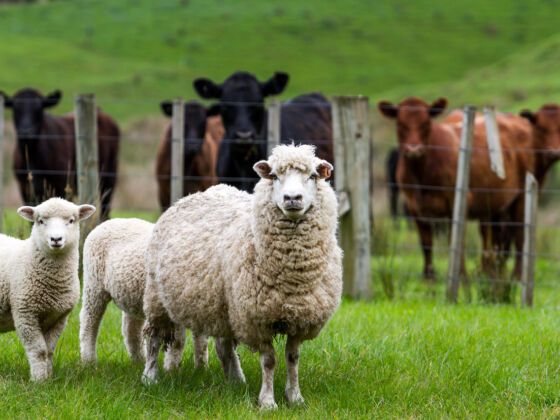MY BEST FRIEND and I recently spent three weeks WWOOFing, working on three very different farms for a week each. The first two were small, backyard family farms in the North Island region of the Bay of Plenty. The third was Wairuna Farm — a major supplier for the Dunedin Farmers Market. We learned a ton about farming and the indigenous plants of New Zealand, and met some friendly local families and international WWOOFers. Having our accommodation and food taken care of for that time was just the icing on the cake.

A few tips from our experience:
1. Respond to a ton of profiles. New Zealand, as a country, has very limited bandwidth and internet is slow and patchy. I wrote very detailed emails to about 50 farms and only received responses from 12 or so. Pick the region you’re interested in and get emailing.
2. Don’t sell yourself short. In your email you should be clear about your knowledge of farming (whatever it may be), but more importantly you should tell the hosts about any skills or hobbies you may have. For example, I’m a bread-baking fanatic. At our first farm there was a rainstorm, and the family asked me to bake bread for my workshift. I was in heaven and got to swap recipes and tips with the family. At another farm, the owner showed us a beautiful mural of Istanbul that a WWOOFer had done a few years ago. Another family told a story of having a civil engineer grad student WWOOFer who helped them build a bridge in their yard. Everyone has something to offer.
3. Be respectful and honest if your plans change. Every farm we worked on had stories of frustration as a result of flaky WWOOFers. Yes, plans can shift when you’re traveling, but make sure to keep the family updated accordingly.
4. Timing is important. In summer, WWOOFing is very popular — most farms are booked solid from November through February. The families I talked to all said to get in touch 2-3 weeks in advance in winter and 4-6 weeks in the busy season.
5. Different hosts have varying minimum stay times. We wanted to work on multiple farms, so we only did a week at each place. Some other farms had a minimum stay of two weeks — just make sure you check with the family.
6. Don’t waste the sunshine. Weather can change at the drop of a hat in New Zealand, so if it’s sunny out and you were planning to take pictures of the farm, do it then! You never know when a front bringing rain, sleet, or hail can roll in.
7. The definition of “organic farm” is ambiguous. Sorting through hundreds of profiles, we saw very few for large-scale, high-yield farms. Almost every family in New Zealand has a backyard veg patch, and we found that most of the WWOOF profiles were for families who simply wanted to meet international travelers while getting help in achieving their living-off-the-land goals.
8. Day to day, tasks can vary greatly. From housecleaning and cooking during a storm, to weeding and even sheep herding. Keep an open mind and remember this is not vacation — you’re working for your room and board.
9. Take advantage of your hosts’ knowledge. No matter how tired you are at the end of the day, don’t hole up in your room with your iPad. Making a connection with the family is a huge part of the experience, and they are a source of vast knowledge on local hikes, attractions, and future travel planning.